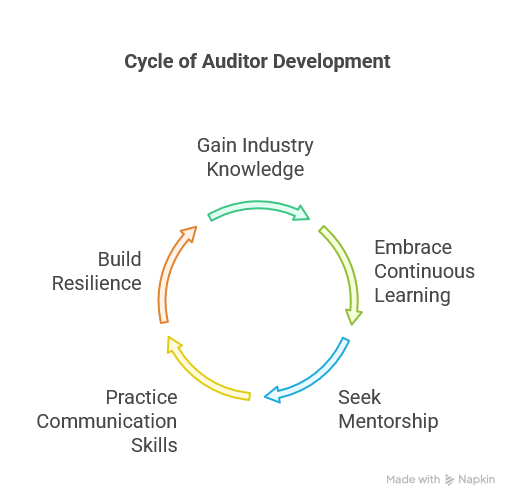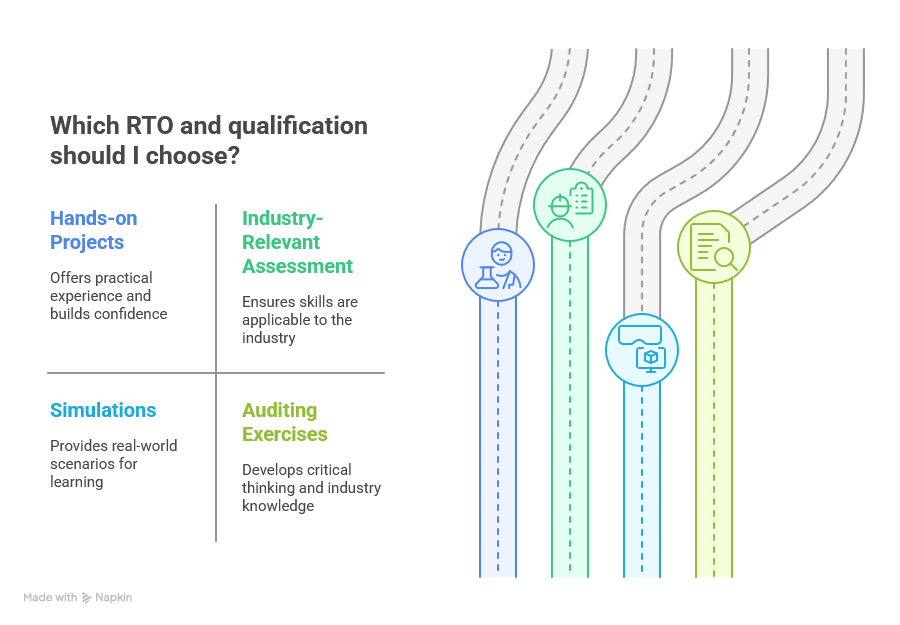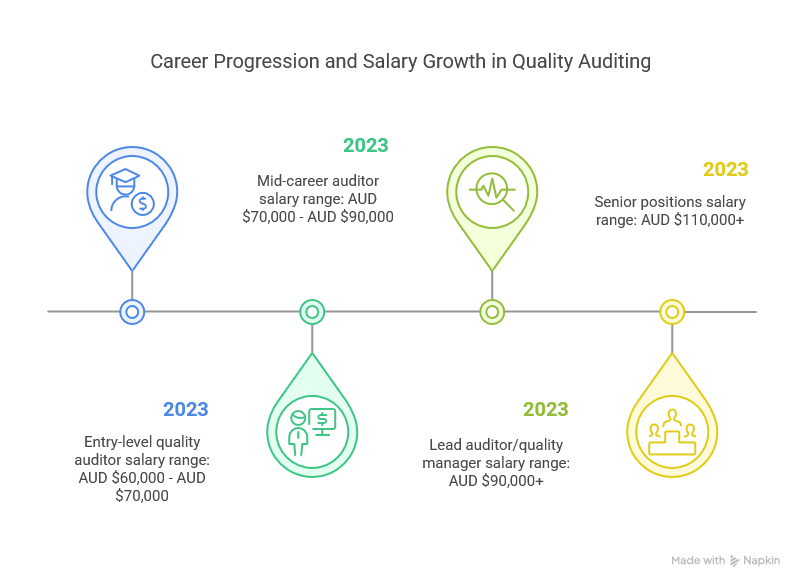Quality auditors are often seen as the gatekeepers of compliance, ensuring processes and products align with established benchmarks. But what do they actually do from day to day, and how do they add value beyond simply verifying documents? This article delves into the multifaceted responsibilities of a quality auditor, highlighting how they bring structure, accountability, and insight to organisations in a broad range of sectors. If you're thinking about pursuing quality auditing courses, this piece will clarify whether the role aligns with your interests and career ambitions.
In essence, a quality auditor reviews a company's internal procedures and outputs to ensure they meet or exceed specific criteria. Those criteria might derive from regulatory standards, industry certifications, or internal performance targets. The auditor's job is to gather and interpret data, then present findings that guide decision-makers toward better outcomes. The depth and breadth of these responsibilities can vary based on factors like the auditor's seniority, the size of the organisation, and the nature of the industry.

Core Responsibilities
Quality auditors do more than tick boxes. They engage in:
Audit Planning
Before any audit begins, auditors define the scope—what will be inspected, what standards apply, and which team members need to be involved. Effective planning is crucial, as it sets expectations and ensures the audit process runs smoothly.
Evidence Gathering
During the audit, auditors inspect documents, interview staff, and observe workflows. For a chemical manufacturing plant, for example, an auditor might examine safety protocols on the production line, check equipment calibration records, and interview technicians about standard operating procedures.
Analysis
Next, auditors interpret the gathered information in light of established standards. They identify gaps or issues and separate minor discrepancies from major nonconformities that could jeopardise safety or compliance.
Reporting
Auditors compile a thorough report summarising what was examined and how well it aligns with the standards. The best auditors communicate issues clearly, suggesting solutions that can be implemented in a practical manner. Rather than simply flagging a problem, they aim to add real value by guiding the team toward a fix.
Follow-Up
Lastly, auditors may revisit the audited area or process after corrective actions have been applied, verifying that the improvements are in place and functioning as intended.
Bridging Compliance and Improvement
Many people assume that a quality auditor's sole role is compliance enforcement—verifying that employees follow rules and procedures. Although compliance is a significant aspect, auditors often serve as agents of continuous improvement. By identifying process inefficiencies or recurrent issues, they help management implement positive changes that go beyond compliance. For instance, an auditor in a food processing plant might notice outdated machinery that meets minimum health standards but slows production unnecessarily. Highlighting such a finding in an audit report can prompt management to upgrade equipment, ultimately benefiting both safety and efficiency.
Essential Skills
Individuals who excel as quality auditors usually possess:
Attention to Detail
Auditors must meticulously examine documentation, processes, and data. Missing a subtle discrepancy could lead to bigger issues down the line.
Strong Communication
Audit findings need to be understood by multiple stakeholders, from frontline employees to senior executives. Skilled auditors tailor their messaging to each audience, fostering engagement rather than resistance.
Analytical Thinking
Auditors often translate raw data into meaningful insights. This might involve spotting patterns in error logs or reconciling multiple sources of information.
Objectivity
Neutrality is paramount. Auditors must avoid personal bias or conflicts of interest. Their credibility relies on accurate, unbiased assessments of the facts.
Adaptability
Regulations, technology, and business priorities evolve. Auditors need to be comfortable adjusting their methods or learning new standards as circumstances change.

Work Environments
Quality auditors find roles in a wide variety of industries. A hospital might employ an internal auditor to ensure compliance with patient care standards, while a mining company might rely on external auditors to certify that safety protocols meet legislative requirements. In some cases, auditors work independently as consultants, offering their services to organisations needing external evaluations.
Many are attracted to auditing because it provides a fresh perspective on operations. Rather than being confined to a single task, they move between departments or even across different companies, evaluating multiple systems. This variety keeps the work interesting and intellectually stimulating, especially for people who enjoy problem-solving.
Relationship to Formal Qualifications
Although auditing skills can be learned on the job, a structured course such as the BSB50920 Diploma of Quality Auditing equips individuals with recognised methodologies and best practices. Training often covers important topics like audit planning, ethical standards, and leadership in an audit context. For those looking to stand out to potential employers, formal education in quality auditing signals a commitment to professionalism and continuous development.
Career Progression
Depending on the organisation, junior auditors typically focus on data collection and basic analysis. Over time, they may move up to lead auditor or team leader positions, taking on more complex projects. Eventually, some quality auditors evolve into roles like compliance manager or quality assurance manager, guiding overarching strategies and mentoring junior auditors. Others branch out into specialised areas such as environmental auditing or cybersecurity auditing.
Challenges of the Role
Despite its rewards, the auditor's role can be challenging:
Resistance from Staff
Auditors sometimes encounter individuals or teams reluctant to share certain information or resistant to new procedures. Strong interpersonal skills help in overcoming such tension and creating a collaborative atmosphere.
Constantly Shifting Standards
Regulations and best practices change frequently. Auditors must keep pace by attending professional development courses, reading up on legislative updates, and staying connected with industry bodies. This is especially evident in fast-evolving fields like healthcare or financial services.
High Accountability
The accuracy of an auditor's findings can have major consequences. Missing a compliance breach, for instance, can lead to fines, legal complications, or safety incidents. This pressure underscores the need for rigorous procedures and thorough documentation.
Cultural Differences
In global companies, auditors may interact with teams in different countries, each having distinct legal frameworks and cultural norms. Navigating these differences requires empathy, curiosity, and a willingness to learn.
Why Organisations Value Quality Auditors
Quality auditors offer a safeguard against errors or oversights that could prove costly. They also serve as catalysts for positive change. By identifying opportunities for efficiency and highlighting best practices, auditors encourage a continuous improvement mindset. This leads to better outcomes for the organisation's customers, employees, and shareholders.
From a practical standpoint, employing skilled auditors often leads to fewer operational disruptions because issues are caught early. Moreover, the presence of a rigorous auditing function can boost an organisation's reputation. For instance, demonstrating compliance with Australian or international standards can be a strong marketing point, attracting business partners or customers who value consistent quality.

Alignment with Quality Auditing Courses
Many skills used by quality auditors develop with experience, but formal training offers a foundation of best practices that speeds up professional growth. Courses frequently use case studies simulating real-world scenarios, helping students see how they might handle common auditing challenges. Lessons might also involve role-playing exercises, teaching learners how to communicate findings in a constructive manner.
Further, course modules often integrate leadership and project management skills into the auditing context. The BSB50920 Diploma of Quality Auditing is an example of a nationally recognised program that addresses these areas. It goes beyond just compliance checklists, equipping students to become leaders and innovators in their organisations.
A quality auditor's role extends beyond basic verification of compliance documents. Acting as impartial observers, they identify inefficiencies, recommend improvements, and help cultivate an organisational culture of accountability. By bridging the gap between mandated requirements and strategic growth, auditors add immediate value in day-to-day operations while setting the stage for long-term success.
If the variety and analytical nature of quality auditing appeals to you, it might be worth reading the main article on the BSB50920 Diploma of Quality Auditing or exploring other related articles about quality auditing. By deepening your knowledge, you can make an informed choice about whether pursuing one of these quality auditing courses aligns with your ambitions. For guidance on course selection or professional pathways, contact a reputable training provider or industry association.